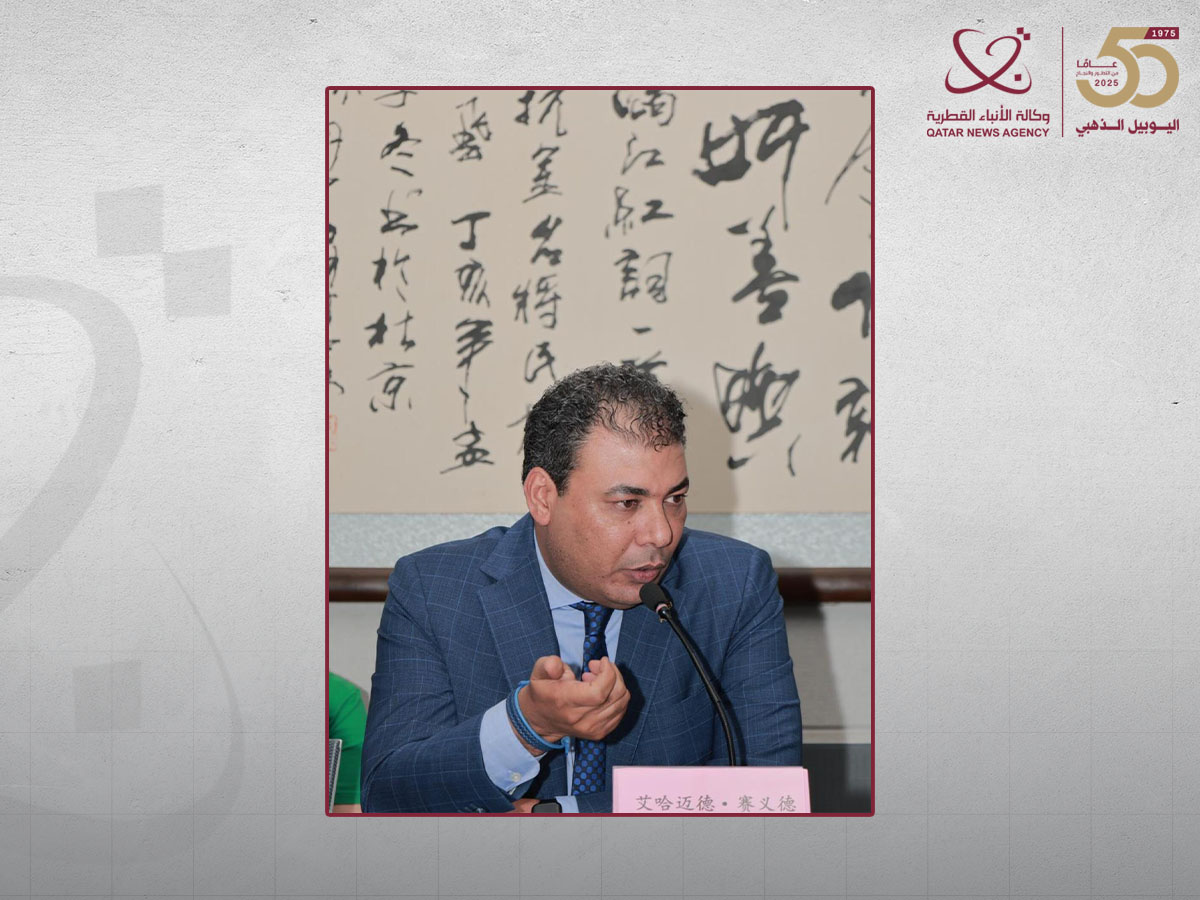On International Translation Day, Bayt Alhekma Founder Highlights Sheikh Hamad Award’s Role in Advancing Translation

Doha, September 29 (QNA) – Founder and CEO of Bayt Alhekma, and visiting professor at the Communication University of China, Dr. Ahmed Al Saeed emphasized that the Sheikh Hamad Award for Translation and International Understanding has significantly advanced knowledge production in translation across languages, particularly between Arabic and Chinese.
In exclusive statements to Qatar News Agency (QNA) on the occasion of International Translation Day, which falls on September 30, Dr. Al Saeed said that the Sheikh Hamad Award for Translation and International Understanding rewards significant translation projects worldwide and in various languages under the Achievement category.
Dr. Al Saeed, who won the Achievement category of the Sheikh Hamad Award for Translation in 2021, praised the award and its cultural role in promoting communication between Arabic and other languages around the world. He emphasized that the award fosters fair competition, raises standards of quality and linguistic review, and instills in translators a sense of responsibility to continue working professionally.
The CEO of Bayt Alhekma, which specializes in translation between Arabic and Chinese, explained that the Chinese academic and popular community has become more familiar with Arabic culture thanks to translation. He pointed out that today, there are 52 universities in China with Arabic language departments and research centers specializing in Arabic and Islamic studies. The number of Chinese-speaking Arabs residing in China is estimated at more than 20,000, contributing to a new image of Arabs and Muslims and correcting the stereotypes propagated by Western media.
He emphasized that translation is the ultimate key to establishing peace in the world because it reduces distances, eliminates misunderstandings, and forms a strong bridge for mutual understanding between peoples. Without translation, people would not have known the literature and thought of others. He pointed out that Arabic texts are now taught in Chinese schools, such as the poems of Mahmoud Darwish, and that writers like Adonis, Naguib Mahfouz, and Gibran Khalil Gibran have a significant presence and influence within Chinese culture.
Dr. Al Saeed emphasized that translation and publishing are part of a larger mission of Arab-Chinese exchanges, through books, training courses, conferences, exhibitions, cultural products, and cultural trade, independent of politics and economics.
He emphasized that the use of artificial intelligence in translation is not dangerous, but rather a helpful tool, provided that a good translator knows how to leverage it to gather information and save time and effort, just as computers helped creative people transition from handwriting to digital writing.
Regarding the idea of establishing an Arab publishing house specializing in translation from Arabic to Chinese and vice versa, he said that during his stay in China in 2010, he noticed that Arab-Chinese cooperation revolved around trade and economics, with little cultural engagement. He therefore decided in 2011 to establish Bayt Alhekma as a publishing and translation house dedicated to translating works from Chinese to Arabic and vice versa.



